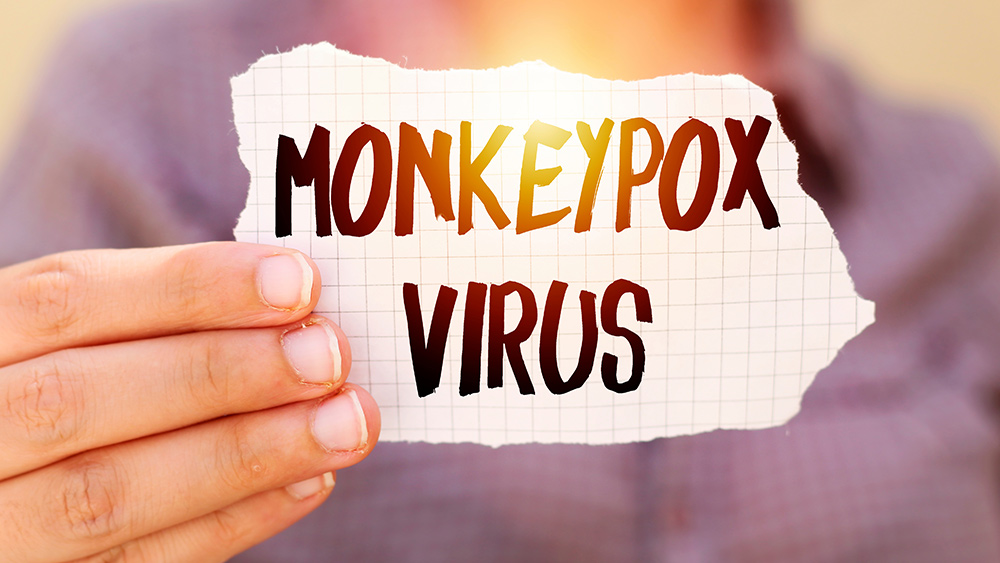Green tea and carrots could reverse dementia, restore memory
07/29/2019 / By Stephanie Diaz

A new study published in the Journal of Biological Chemistry suggests that carrots and green tea contain compounds which can reverse the symptoms Alzheimer’s disease.
Researchers from the University of Southern California investigated the effects of two compounds, namely, epigallocatechin-3-gallate (EGCG) and ferulic acid (FA), on mice that have been genetically modified to develop Alzheimer’s disease. EGCG is a compound found in green tea, while FA is found in foods like carrots, tomatoes, rice, wheat, and oats.
For their study, the researchers divided 32 genetically modified mice and an equal number of healthy mice into four groups. Each group received one of four treatments: EGCG, FA, EGCG with FA, or a placebo.
Before and after the three-month diet, all the mice underwent a series of neuropsychological tests similar to the thinking and memory tests used to assess dementia in humans. One particularly noteworthy test they conducted was the Y-shaped maze test. This test was designed to evaluate a mouse’s spatial working memory — a skill that humans use to find their way out of a building.
Carrots and green tea restore spatial memory
During the initial assessment, healthy mice had no problem looking for food or an escape route in the Y maze, but the same could not be said of their mentally impaired counterparts. However, after treatment with a combination of EGCG and FA, the mice with Alzheimer’s managed to perform just as well as healthy mice.
“After three months, combination treatment completely restored spatial working memory, and the Alzheimer’s mice performed just as well as the healthy comparison mice,” said Terrence Town, senior author of the study.

The researchers explained that the positive results have something to do with the ability of EGCG and FA to inhibit the break down of amyloid precursor proteins into amyloid beta proteins. These smaller proteins form clusters in the brains of people with Alzheimer’s and interrupt the activity of neurons.
The researchers also observed that EGCG and FA reduced oxidative stress and inflammation in the brains of mentally impaired mice. In humans, oxidative stress and inflammation are key aspects of the pathology of Alzheimer’s disease.
Foods that reduce the risk of Alzheimer’s disease
Aside from carrots and green tea, there are other foods that can help reduce the risk of Alzheimer’s disease. Researchers from the Rush University Medical Center in Chicago came up with a diet plan which includes these foods. This diet plan, called the MIND diet, can reduce the risk of Alzheimer’s disease by as much as 53 percent.
Listed below are some of the foods included in the MIND diet. (Related: MIND diet, healthy fats and smoothies are crucial for preventing Alzheimer’s disease, research shows.)
- Green leafy vegetables: The MIND diet recommends that people eat at least two servings of green leafy vegetables, such as kale, spinach, and collard greens. These vegetables are rich in vitamins, minerals, and other essential nutrients that promote brain health.
- Nuts: The micronutrients and other compounds present in nuts help lower bad cholesterol levels and decrease the risk of heart disease. The MIND diet recommends snacking on nuts at least five times a week.
- Berries: Berries have a special place in the MIND diet. According to the lead author of the MIND diet study, Martha Clare Morris: “Blueberries are one of the more potent foods in terms of protecting the brain.” She also said that strawberries offer the same benefits. The MIND diet recommends eating berries twice a week.
- Fish: Fish is an important part of the MIND diet and should be eaten twice a week. Many fish contain beneficial compounds that help protect brain function.
- Olive oil: Research shows that olive oil protects the brain against cognitive decline. The MIND diet recommends replacing other cooking oils and fats with this beneficial oil.
For more news and stories about how to improve brain health, visit BrainHealthBoost.com.
Sources include:
Submit a correction >>
Tagged Under:
#nutrition, aging, alternative medicine, Alzheimer's disease, amyloid beta, anti-inflammatory, antioxidant, Blueberries, brain function, brain health, carrots, cognitive decline, cognitive function, dementia, disease treatments, epigallocatechin-3-gallate, ferulic acid, fish, food cures, food is medicine, functional food, Green tea, inflammation, memory, MIND diet, natural cures, natural medicine, neurodegenerative diseases, nuts, olive oil, oxidative stress, phytonutrients, prevention, research, spatial memory, Strawberries, vegetables
This article may contain statements that reflect the opinion of the author





















